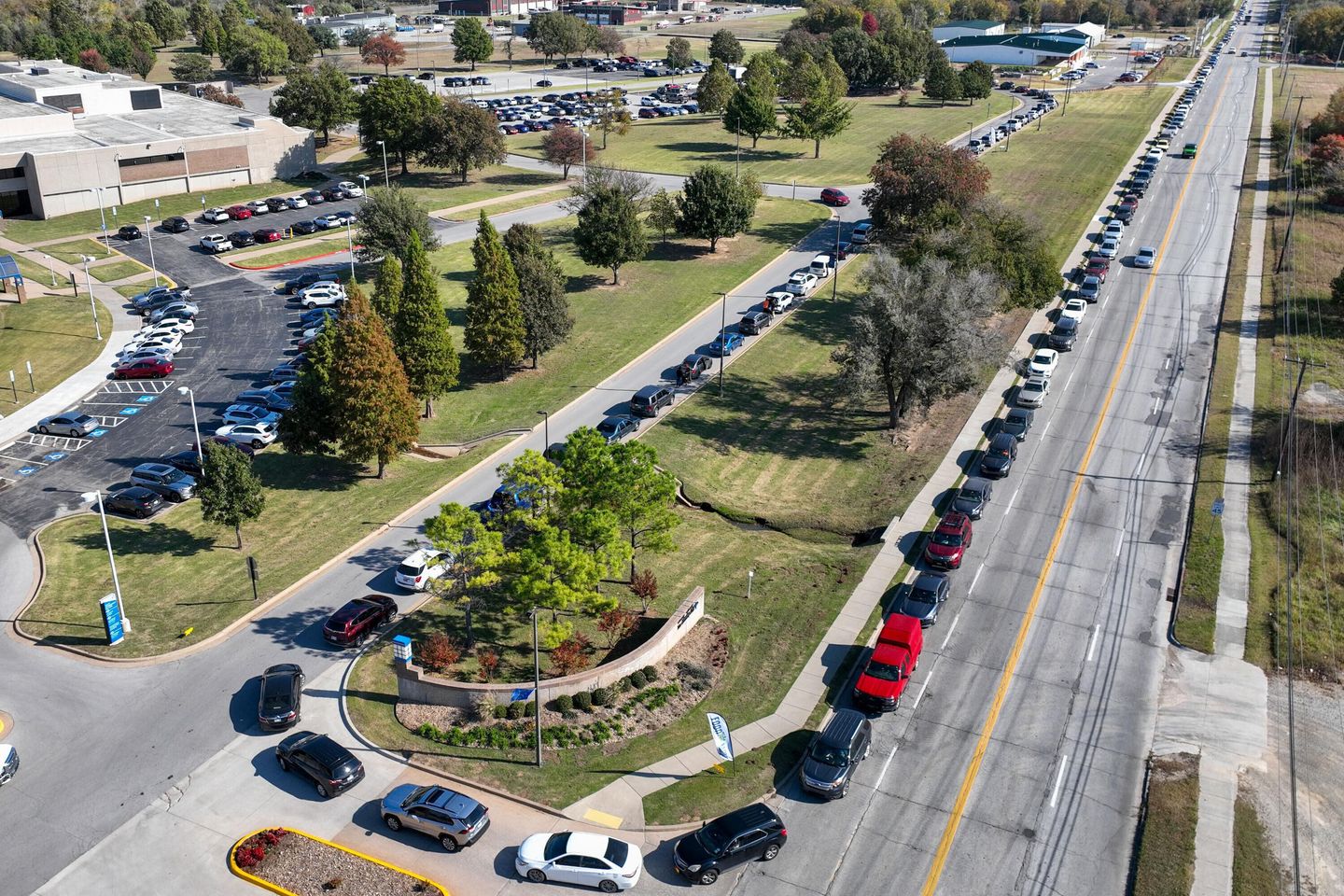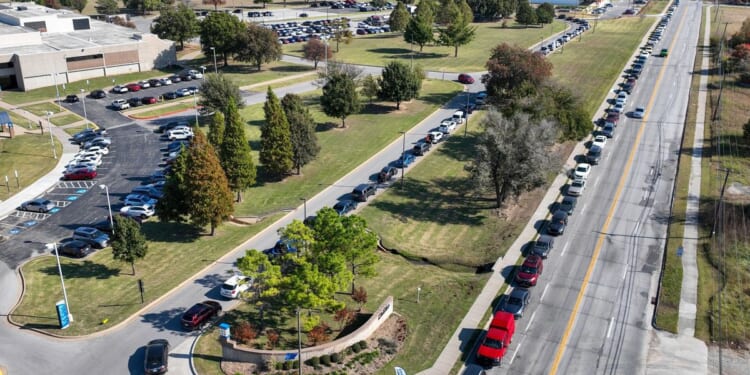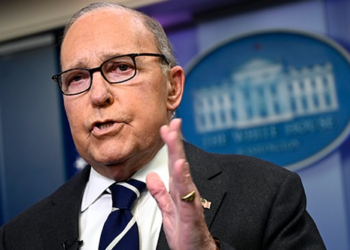
The Trump administration has ordered states to stop distributing full food assistance benefits after Supreme Court Justice Ketanji Brown Jackson temporarily blocked a lower court’s decision directing the administration to fully fund food-stamp benefits amid the government shutdown.
Justice Jackson, a Biden appointee, gave the Trump administration a win on Friday by pausing a Rhode Island federal judge’s requirement to distribute full payments under the Supplemental Nutrition Assistance Program.
The hold will remain in place for 48 hours to allow the U.S. Court of Appeals to review the lower court’s order.
The decision immediately threw the Supplemental Nutrition Assistance Program (SNAP) into chaos for 42 million low-income individuals who depend on the benefits. The Trump administration immediately responded by telling states to stop fully funding the program, or they will face financial penalties.
Funding for SNAP lapsed on Nov. 1 due to the government shutdown.
A coalition of cities and nonprofit groups has sued to keep the money for the program flowing, but the Trump administration has argued that with the government shutdown, the program no longer legally exists; it can no longer make payments until Congress reopens the government and restores funding.
In a memo issued by the Agriculture Department, which oversees SNAP, the Trump administration told states to pay about 65% of a typical SNAP payment to recipients.
If states do not comply with the directive, the Trump administration threatened to cancel federal funding used to cover SNAP’s administrative costs.
The federal government covers the cost of SNAP benefits, but states administer the program to their residents. States and the federal government share the burden of administrative costs.
“To the extent states sent full SNAP payment files for November 2025, this was unauthorized,” the Agriculture Department wrote in a memo issued late Saturday.
“States must immediately undo any steps taken to issue full SNAP benefits for November 2025,” the memo said. “Failure to comply with this memorandum may result in USDA taking various actions, including cancellation of the Federal share of State administrative costs and holding states liable.”
In the time on Friday between the Rhode Island judge’s decision and Justice Jackson’s pausing it, several states began distributing benefits.
Wisconsin, for example, announced on Friday that roughly 700,000 residents received their SNAP payments while New York paid its 2.9 million recipients.
Oregon, Pennsylvania, and Connecticut are among the other states that issued the payments.
Massachusetts Gov. Maura Healey, a Democrat, said in a statement Sunday that residents who have already received SNAP money on their cards “should continue to spend it on food.”
She added that those funds were legally issued because they were before the Rhode Island court decision and before the Supreme Court ruling.
Wisconsin Gov. Tony Evers said in a statement Sunday that he would refuse to comply with the Agriculture Department’s memo, saying that would harm low-income residents in his state.
White House economic adviser Kevin Hassett told CBS News’ “Face the Nation” on Sunday that the administration is “very carefully studying the law and trying to get as much money out the door as is legal.”
“We are very glad that we found a way to get a lot of the SNAP money out, but it’s really, really pushing the boundaries of the law, which is why the Supreme Court had to take that ruling from Rhode Island and put it on hold,” Mr. Hasset said.
“The president’s job and all of our jobs is to uphold the law,” he said.
Democrats expressed outrage over the Trump administration’s memo.
Rep. Angie Craig of Minnesota, the top Democrat on the House Agriculture Committee, said in a statement that the Trump administration was “demanding that food assistance be taken away from the households that have already received it.
“They would rather go door to door, taking away people’s food, than do the right thing and fully fund SNAP for November so that struggling veterans, seniors, and children can keep food on the table,” Ms. Craig said in a statement.
Sen. Amy Klobuchar of Minnesota posted on X: “The cruelty is the point.”
“It’s their choice to do this,” posted Ms. Klobuchar, the top Democrat on the Senate Agriculture Committee.
U.S. District Judge John McConnell had ruled that there was money in a contingency fund to pay partial SNAP benefits, and in a second ruling, he ordered the government to tap other money, dedicated to the school lunch program, to make the program able to pay 100% of benefits for November.
That second ruling, which came Thursday, ignited a flurry of legal action.
The Justice Department rushed to the 1st U.S. Circuit Court of Appeals asking for a reversal, and when that wasn’t immediately forthcoming Friday evening, they asked the Supreme Court to intervene.
Justice Jackson said she expected the appeals court to move quickly, and until then, the government shouldn’t have to pay out the full benefit.
“Given the First Circuit’s representations, an administrative stay is required to facilitate the First Circuit’s expeditious resolution of the pending stay motion,” the justice wrote in a brief order.
Solicitor General D. John Sauer had told the high court that paying the full benefits would require taking money from the Child Nutrition Program.
He said that’s an untenable position to put the government in.
Mr. Sauer said some states, which pay out the benefits funded by federal cash, are already gaming the system by rushing a whole month’s worth of payments to their beneficiaries, trying to get in line before any more court action.
The Senate held a rare Sunday session to end the now 40-day government shutdown, but on Friday, Democrats blocked a bill to pay federal workers who’ve gone without compensation while the government remains closed.
Democrats blocked the measure after Republicans rejected Democrats’ offer to reopen the government with a one-year extension of enhanced Obamacare premium subsidies — a move that would guarantee the current fight being rerun at the height of midterm electioneering.
The moves suggest an end to the record-breaking funding impasse is not imminent, but the Senate is planning to stay in session through the weekend in hopes that something breaks loose.
The 53-43 vote to begin debate on a bill to pay government workers fell short of the 60 needed to overcome a filibuster.
Three Democrats voted with all Republicans in support of the measure, while others argued it needed more guardrails to prevent the Trump administration from moving money around.
Earlier Friday, Democrats had offered separately to end the shutdown if Republicans added a one-year extension of enhanced Obamacare premium subsidies to the needed stopgap spending bill.
“The Senate could do this within a few hours,” said Senate Minority Leader Charles E. Schumer, New York Democrat. “This is a reasonable offer.”
The Democratic offer included plans for a bipartisan committee to work on long-term “reforms” to address health care costs, while honoring Republicans’ request not to start negotiations until after the shutdown ends by simply extending current law for one year, he said.
Republicans said the proposal was a “nonstarter” and they won’t let Democrats hold government funding “hostage” to secure unrelated policy demands.
They also said the subsidies need to be overhauled so government money isn’t used to pad the profits of insurance companies or pay for plans that cover abortions.










